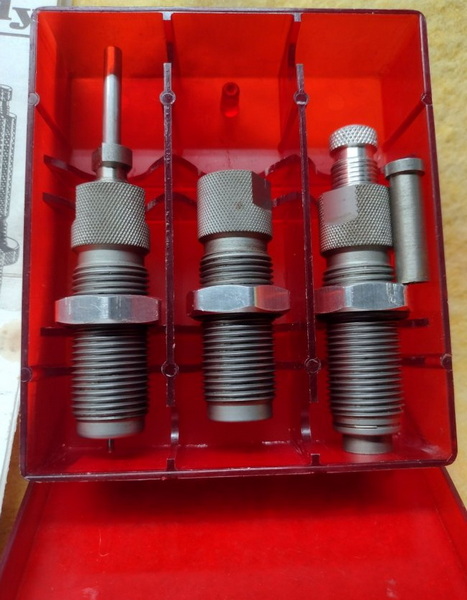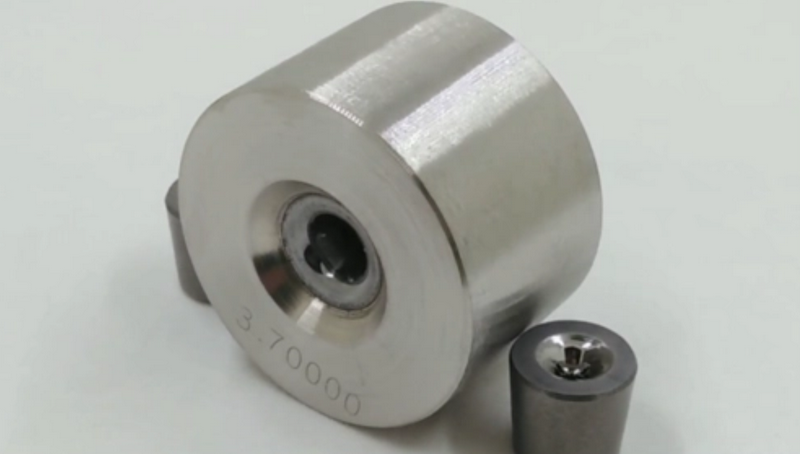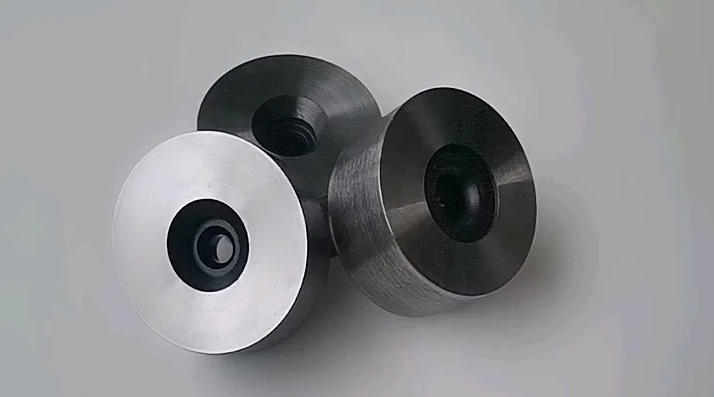Content Menu
● Introduction
● Understanding Reloading Dies
>> Types of Reloading Dies
● Hornady Titanium Nitride Dies: A Game-Changer in Reloading
>> What is Titanium Nitride?
>> Benefits of Hornady Titanium Nitride Dies
● Carbide Dies: The Traditional Choice
>> What are Carbide Dies?
>> Benefits of Carbide Dies
● Hornady Titanium Nitride Dies vs Carbide: A Detailed Comparison
>> Hardness and Wear Resistance
>> Friction and Case Wear
>> Lubrication Requirements
>> Cost Considerations
>> Application Range
● Hornady Custom Grade™ Dies: The Best of Both Worlds
>> Features of Hornady Custom Grade™ Dies
● Reloading Techniques for Straight-Walled Cases
● Conclusion
● Frequently Asked Questions
>> Q1: Do I need to lubricate cases when using Hornady titanium nitride dies?
>> Q2: How long do titanium nitride-coated dies last compared to carbide dies?
>> Q3: Can I use Hornady titanium nitride dies for all calibers?
>> Q4: Are Hornady Custom Grade™ dies worth the investment for a beginner reloader?
>> Q5: How do I maintain my titanium nitride or carbide dies?
Introduction
For firearm enthusiasts and reloaders, the choice of reloading dies can significantly impact the quality and efficiency of their ammunition production. Two popular options that often come up in discussions are Hornady titanium nitride dies and carbide dies. In this comprehensive guide, we'll explore the differences, benefits, and considerations between these two types of reloading dies, with a focus on Hornady's offerings.
Understanding Reloading Dies
Before diving into the specifics of titanium nitride and carbide dies, it's essential to understand the role of reloading dies in the ammunition reloading process. Reloading dies are precision tools used to resize and shape spent brass casings, seat new bullets, and ensure consistent ammunition production.
Types of Reloading Dies
There are several types of reloading dies available, including:
1. Sizing dies
2. Bullet seating dies
3. Crimping dies
4. Full-length sizing dies
5. Neck sizing dies
Each type serves a specific purpose in the reloading process, and the material they're made from can affect their performance and longevity.

Hornady Titanium Nitride Dies: A Game-Changer in Reloading
Hornady, a well-respected name in the firearms industry, has introduced titanium nitride coating to their reloading dies, particularly in their Custom Grade™ die lineup. This innovation has garnered significant attention from reloaders due to its unique properties and benefits.
What is Titanium Nitride?
Titanium nitride (TiN) is a ceramic material known for its exceptional hardness and wear resistance. When applied as a coating to reloading dies, it offers several advantages over traditional materials.
Benefits of Hornady Titanium Nitride Dies
1. Increased Hardness: TiN coating is harder than carbide, providing excellent wear resistance and longevity.
2. Reduced Friction: The smooth surface of TiN-coated dies reduces friction during the resizing process, resulting in smoother operation and less wear on brass casings.
3. No Lubrication Required: For straight-walled pistol cases, TiN-coated dies often don't require case lubrication, saving time and reducing mess in the reloading process.
4. Corrosion Resistance: TiN coating offers superior protection against corrosion, ensuring the dies maintain their performance over time.
5. Distinctive Appearance: The golden color of TiN-coated dies makes them easily identifiable and adds a touch of elegance to your reloading setup.
Carbide Dies: The Traditional Choice
Carbide dies have long been a popular choice among reloaders, particularly for pistol calibers. Let's examine their characteristics and benefits to understand how they compare to titanium nitride dies.
What are Carbide Dies?
Carbide dies are made from tungsten carbide, a compound known for its extreme hardness and wear resistance. These dies are typically used for straight-walled pistol cases and offer several advantages over standard steel dies.
Benefits of Carbide Dies
1. Durability: Carbide is extremely hard and resistant to wear, ensuring a long lifespan for the dies.
2. No Lubrication Required: Like TiN-coated dies, carbide dies often don't require case lubrication for straight-walled pistol cases.
3. Consistent Sizing: The hardness of carbide ensures consistent case sizing over many reloading cycles.
4. Smooth Operation: Carbide dies provide smooth operation and are less likely to scratch or mark brass casings.
Hornady Titanium Nitride Dies vs Carbide: A Detailed Comparison
Now that we've explored the characteristics of both titanium nitride and carbide dies, let's compare them directly to help you make an informed decision for your reloading needs.
Hardness and Wear Resistance
Titanium nitride coating is generally considered to be harder than carbide. This increased hardness translates to potentially longer die life and better wear resistance over time. However, both materials are exceptionally durable and will likely outlast standard steel dies.
Friction and Case Wear
Both TiN-coated and carbide dies offer low-friction surfaces that are gentle on brass casings. However, some reloaders report that TiN-coated dies provide an even smoother experience, potentially reducing case wear over multiple reloading cycles.
Lubrication Requirements
For straight-walled pistol cases, both TiN-coated and carbide dies typically don't require case lubrication. This is a significant advantage over standard steel dies, as it saves time and reduces the mess associated with case lubrication.
Cost Considerations
Titanium nitride-coated dies are often less expensive than solid carbide dies. This is because TiN is applied as a coating to steel dies, whereas carbide dies are machined from solid carbide material. The cost difference makes TiN dies an attractive option for reloaders looking for high-quality dies at a more affordable price point.
Application Range
While both TiN-coated and carbide dies excel with straight-walled pistol cases, TiN coating can be applied to a wider range of die types, including those for bottlenecked rifle cartridges. This versatility gives TiN-coated dies an edge in terms of application range.

Hornady Custom Grade™ Dies: The Best of Both Worlds
Hornady's Custom Grade™ die lineup incorporates the benefits of titanium nitride coating with their precision-engineered die designs. These dies feature a distinctive "gold ring" finish on most pistol dies, which is the TiN coating.
Features of Hornady Custom Grade™ Dies
1. Titanium Nitride Coating: The TiN "gold ring" finish provides superior hardness and wear resistance.
2. Precision Machining: Custom Grade™ dies are crafted to tight tolerances for consistent performance.
3. Versatility: Available for a wide range of pistol and rifle calibers.
4. Innovative Design: Incorporates features like the elliptical expander and in-line bullet seater for improved reloading results.
Reloading Techniques for Straight-Walled Cases
Whether you choose titanium nitride or carbide dies, proper reloading techniques are crucial for achieving the best results with straight-walled cases. Here are some tips to optimize your reloading process:
1. Case Inspection: Always inspect your cases for signs of wear, cracks, or other defects before reloading.
2. Proper Sizing: Ensure your cases are properly sized to maintain consistent headspace and reliable feeding.
3. Primer Seating: Pay attention to proper primer seating depth to avoid misfires or inconsistent ignition.
4. Powder Measurement: Use a reliable powder measure or scale to ensure consistent powder charges.
5. Bullet Seating: Seat bullets to the correct depth for optimal performance and reliability.
6. Crimping: Apply the appropriate amount of crimp for your chosen bullet and intended use.
Conclusion
Both Hornady titanium nitride dies and carbide dies offer significant advantages over standard steel dies, particularly for reloading straight-walled pistol cases. The choice between the two often comes down to personal preference, budget considerations, and specific reloading needs.
Hornady's titanium nitride-coated Custom Grade™ dies provide an excellent balance of performance, durability, and value. Their innovative design features and the benefits of TiN coating make them a top choice for many reloaders.
Ultimately, whether you choose titanium nitride or carbide dies, investing in quality reloading equipment will contribute to more consistent and reliable ammunition production. As with any aspect of firearms and reloading, always prioritize safety and follow proper procedures to ensure the best possible results.

Frequently Asked Questions
Q1: Do I need to lubricate cases when using Hornady titanium nitride dies?
Answer: For straight-walled pistol cases, lubrication is typically not required when using Hornady titanium nitride dies. However, for bottlenecked rifle cases or in high-volume reloading, a light application of case lube may still be beneficial.
Q2: How long do titanium nitride-coated dies last compared to carbide dies?
Answer: Both titanium nitride-coated and carbide dies are extremely durable and can last for many thousands of reloading cycles. The lifespan of the dies depends on factors such as usage frequency, maintenance, and the specific cartridges being reloaded. With proper care, both types of dies can last for many years.
Q3: Can I use Hornady titanium nitride dies for all calibers?
Answer: Hornady offers titanium nitride-coated dies for a wide range of pistol and rifle calibers. However, the availability may vary depending on the specific caliber and die type. Check Hornady's product lineup to confirm availability for your desired caliber.
Q4: Are Hornady Custom Grade™ dies worth the investment for a beginner reloader?
Answer: While Hornady Custom Grade™ dies may have a higher initial cost, their durability, precision, and ease of use make them an excellent investment for both beginner and experienced reloaders. The long-term benefits in terms of consistency and reduced wear on brass can outweigh the upfront cost.
Q5: How do I maintain my titanium nitride or carbide dies?
Answer: To maintain your dies:
1. Clean them regularly with a solvent to remove any buildup of carbon or debris.
2. Use a die cleaning brush or patch to clean the interior surfaces.
3. Apply a light coat of gun oil or die lubricant to prevent rust (especially important for non-coated parts).
4. Store dies in a cool, dry place to prevent corrosion.
5. Periodically check for signs of wear or damage, and replace components as needed.
















